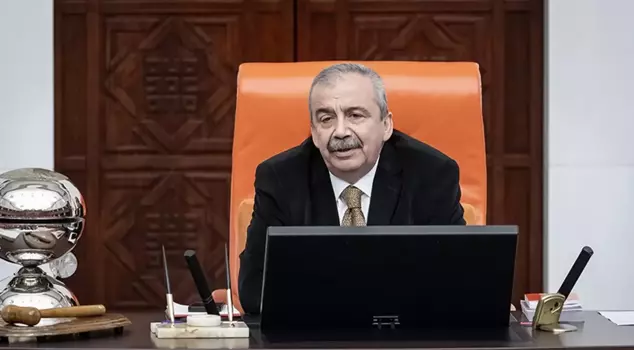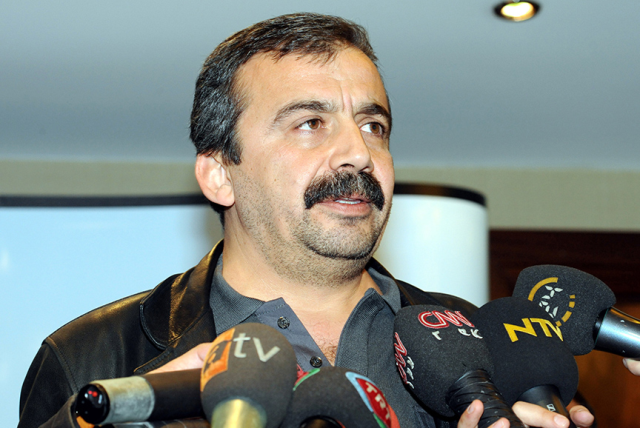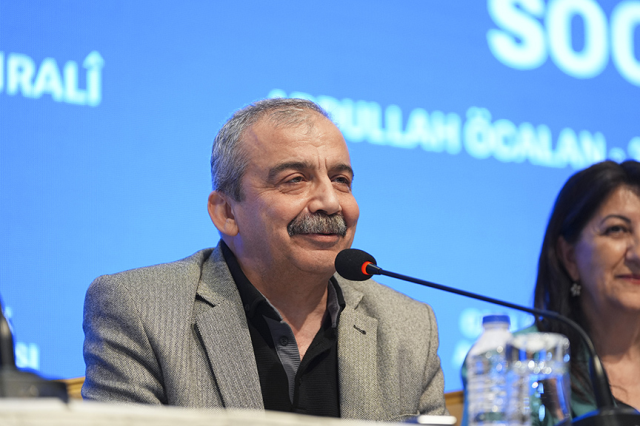
03.05.2025 17:20
Sırrı Süreyye Önder was an extraordinary figure who stood out with his humorous language and unconventional stance in the political arena. His journey from prison to parliament, and from cinema to literature, reveals his multifaceted and sincere identity.
```html
Sirri Süreyye Önder was born on July 7, 1962, in Adıyaman, but spent most of his life in Ankara, particularly in the Mamak district. His father was a municipal worker and a member of the Turkish Workers' Party (TİP) in the 1960s. This environment shaped Önder's political sensitivity from a very young age. He participated in workers' marches as a child and learned to chant slogans from his father.
YOUTH AND PRISON DAYS IN THE SHADOW OF SEPTEMBER 12
After the military coup in 1980, Sirri Süreyye Önder, who would later win a short film award at the Ankara Film Festival, had actually entered prison in the 1980s. He was imprisoned in Mamak Prison in the mid-1980s. The literary and political discussions he had with his fellow inmates reinforced both his activist and writer identity.
After being released from prison, he worked as a humor writer and penned short stories. In his columns, while skillfully satirizing both the state and society, he never neglected to take his share of the blame. For him, humor was not just a language but a form of resistance.
STARTED IN CINEMA LIKE "A TURN": "BEYNELMİLEL"
Outside of politics, Turkey got to know him through the film "Beynelmilel," which was released in 2006. Co-written and directed by him and Muharrem Gülmez, Önder skillfully blended humor and political criticism in this project. The film tells the tragicomic story of local musicians in a town after the 1980 coup, bringing to the screen a period that bears traces of his own youth. The film won many awards, including the Golden Orange.

ENTERED THE PARLIAMENT WITH HUMOR: "I CAME TO REPRESENT HUMOR IN THIS PARLIAMENT"
In the 2011 elections, he was elected as an independent candidate supported by the Peoples' Democratic Congress as a member of parliament for Istanbul. In one of his first speeches in the parliament, he said, "I came to represent humor in this parliament," making the audience laugh and showcasing his style.
He was one of the rare figures who did not just read legal articles from the podium; he constructed a different political language with his ironic, literary, and at times poetic narrative. Once, after a tense debate in the General Assembly, he garnered applause by saying, "We can actually solve all the problems of this country around a barbecue."

MEDIATOR ROLE DURING GEZI PARK DAYS
During the 2013 Gezi Park protests, he was one of the names that acted as a bridge between Prime Minister Recep Tayyip Erdoğan and Taksim Solidarity. With his sincere, soft yet clear language, he gained the trust of the youth. In a statement after the meeting, he said, "Young people are the conscience of this country. A government that does not listen to its conscience loses its direction," leaving a mark in people's memories.
AN UNCONVENTIONAL, SINCERE, AND THINKING PORTRAIT
Sirri Süreyye Önder emerged as a figure who frequently bent the rules and broke bureaucratic molds on the political stage. He often attracted public interest with his speeches filled with literature, music, and humor, and sometimes faced comments like "too sincere, overly sincere." However, he never deviated from his unique style. In an interview, he said, "Anyone with a conscience can do politics. But the real issue is not to forget oneself while doing it," perhaps the statement that best summarizes his multifaceted personality.
```